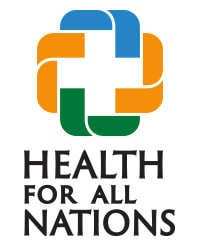|
I am ever amazed at the foresight of my late friend and mentor Dr Dan Fountain. His monograph “Health, the Bible and the Church” my be one of the most important works on the subject of health, healing and wholeness from the latter part of the 20th century. I use it in teaching a class on “Health and Development” so I know it well. The following is an excerpt from the first chapter. If it had been written yesterday it would still have the same relevance as it did back in 1989. Not much has changed at all. I think one of the greatest challenges is going to be how we in the Christian health/healthcare arena respond to the increasing call for HEALTH to be considered a human right. I believe Dan hit the nail on the head when he wrote the following:
As persons individually or collectively we have considered health to be a right rather than a responsibility. We assume that someone is going to deliver health care to us, be it the medical profession, the government, or some agency. We are content to be passive recipients of “health care” rather than active participants in the multitude of activities necessary to maintain and promote our own health. From this community default has developed an understandable attitude of paternalism on the part of the medical profession-”We will do it for you.” As members of the community, we deceive ourselves by assuming the implication that health is the responsibility only of doctors and hospitals. We fail to realize that health has to do with the way we live in our homes, how we do our work, how we play, and with our attitudes, feelings, and emotions. Health is life, and no one can “deliver” it to us nor can anyone but ourselves improve it or destroy it. We ourselves must take the primary initiative for our own health, using many resources available to us from various health and sickness care programs. We have likewise fallen prey to the error that health isa matter only of the physical body, of bodily beauty, strength, and function. If a part of the body hurts, we rush to the appropriate specialist to get it fixed. We assume that to be cured of a physical ailment is to be healed, forgetting the true meaning of healing which is the restoration of wholeness. We permit doctors to treat a peptic ulcer or fix a hernia but not to intrude on our attitudes or our life style. So we continue in our brokenness. Only the best will satisfy us. Consequently we insist on luxury care and on the latest in high-cost reparative technology. We can scarcely afford it now ourselves, and we cannot possibly make this available to the poor. We do not know what to do about this dilemma so we blame it on the medical profession or the government, whereas in reality they are simply acceding to our demands. (HBC page 13) You may request access to this book online by emailing me at [email protected]
0 Comments
Leave a Reply. |
AuthorThis is the blog for the Best Practices in Global Health Mission division of the Center for the Study of Health in Mission. It is a space for all who are interested in sharing opinions, ideas and best practices having to do with Christ centered health related ministry. Archives
April 2020
Categories |

© 2024 Health for All Nations All Rights Reserved In Partnership with Frontier Ventures and the Ralph D. Winter Launch Lab |
ABOUT The mission of Health for All Nations is to engage the global Christian community in the exploration and application of biblical revelation, scientific evidence, and cumulative experience as they relate to health and wholeness. Our mission includes assisting the global Christian church in fulfilling its mandate to promote health and healing among the nations. Learn More |
Proudly powered by Weebly


 RSS Feed
RSS Feed
